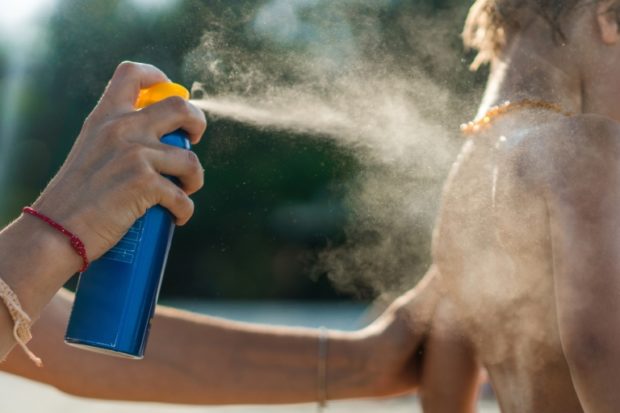3 questions to ask when choosing sunscreen for your child

Image: skynesher/IStock.com via AFP Relaxnews
Now that we are in July, many of us will soon be spending days in the sun, although still under the restrictions of quarantines. It is a prospect that can be unnerving for parents, who need to worry about providing their children with sufficient sun protection.
Along with a hat, dark glasses and perhaps even a beach umbrella, you will also need sunscreen. But how can you be sure that you have the right one? And in particular the right one for your children? Here are some of the questions that you should ask before letting the kids loose in the midday heat.
Does it have to be sunscreen for kids?
In recent years, sunscreens sold especially for children are taking up more and more shelf space in supermarkets and pharmacies. However, labels that say a product is for children should not distract attention from one all-important criterion: a product’s sun-protection factor (SPF). As a rule of thumb, multiplying the amount of time that it would take to get sunburned when not wearing any product by a sunscreen’s SPF will give you the amount of time that it will protect you from getting burned. For example, in a situation where you would expect to develop sunburn in ten minutes, an SPF of 15 will offer 150 minutes of protection.
In 2017, a study conducted by French consumer association 60 millions de consommateurs warned parents about the marketing of special sunscreen “for children.” In particular, it pointed out that “Sunscreens for children are neither better nor worse than other products.” And it is important to be aware of this, especially when you consider that products intended for children are often more expensive.
Should you choose an SPF based on your skin type?
According to dermatologist Pierre-André Bécherel, who spoke to ETX Studio, “Just because people don’t get sunburned does not mean that their skin is well protected. The toxic effects of exposure to the sun are cumulative. This means that the long-term risks of developing cancer are the same for people of all skin types. The assumption that dark skin does not burn should not give people a false sense of security.” With this in mind: the best policy is to always opt for an SPF of 50 or higher.
What about organic creams?
To avoid chemical substances that are potentially harmful to health and to preserve the environment, certain consumers prefer to buy organic sunscreen. But does it provide all of the necessary protection?
In a bid to answer this question, French consumers association UFC Que Choisir tested 20 different brands of conventional and organic sunscreen sold by pharmacies and online retailers. In its report published in 2019, the association pointed out that to be truly effective, a sunscreen should protect against UVB rays that cause sunburn, and also UVA rays, which penetrate more deeply into the skin. However, the association’s investigation showed that not all organic creams are equally effective: approximately half of those tested did not provide adequate protection against UVA.
Finally, limiting time spent exposed to the sun is the best strategy to protect against its potentially harmful effects. Sunscreen is useful, but so too is anti-UV clothing. A long-sleeved T-shirt with long trousers, a hat and sunglasses remains the most effective protection of all. JB
RELATED STORIES:
Beware of skin infections caused by coronavirus masks
Superfoods, high-tech beauty among strongest skincare trends